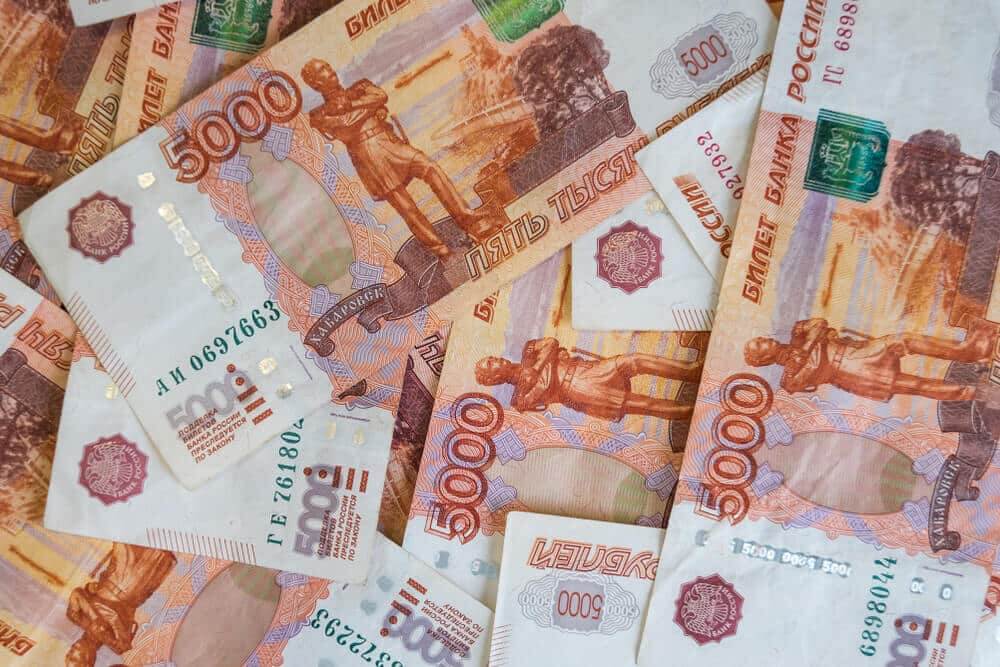
USDRUB analysis new historical high 90.000
The reaction of the Russian Central Bank and tools for stabilizing the currency and the market
Russia’s central bank has announced it will begin intervening in the foreign exchange market. The ruble has fallen to a historical low after Russian President Vladimir Putin approved what he said was a special military operation in Ukraine.
The Russian currency, government bonds, and stocks sank sharply this morning, prompting the Moscow Stock Exchange to suspend all trade activities, prompting the central bank to announce the first foreign exchange intervention since Crimea’s annexation to Russia in 2014 to support the country’s financial stability.
“In order to stabilize the situation on the financial market, the Bank of Russia has decided to start interventions on the currency market,” the central bank said in a statement.
The ruble recorded a record fall against the dollar to 90.000 rubles, while against the euro it fell close to the psychological limit of 100 rubles, reports Reuters.
Before the geopolitical tensions between Moscow and Kyiv began to intensify in October last year, the exchange rate of the Russian currency was 70 rubles per dollar.
The Bank of Russia has also decided to expand the list of securities that it will accept as collateral in exchange to provide liquid assets and conduct operations on the interbank market that will provide additional liquidity to the banking sector.
Another tool the central bank has at its disposal to ease the pressure on the ruble is its reference interest rate. It is estimated that the bank will continue with the monetary tightening in order to curb inflation, which the fall of the ruble will probably push up.
Actors in global capital markets expect a new package of harsh Western sanctions against Russia due to the launch of its military action in Ukraine.
EU sanctions on Russia
The EU sanctions against Russia related to the Ukrainian crisis came into force today. These are the first steps in the planned series of retaliatory measures designed to strengthen if Russian President Vladimir Putin orders an attack on Ukraine or moves his troops deeper into that country.
The sanctions are aimed at high-ranking Russian government officials, several companies, and hundreds of Russian Duma deputies who voted to recognize the independence of separatist parts of southeastern Ukraine.
They mainly consist of freezing the property of those affected and banning their travel to EU countries.
Putin signed a decree recognizing Donetsk and Luhansk in eastern Ukraine as independent, but he is not on the sanctions list.
The list includes, among others, Defense Minister Sergei Shoigu, Putin’s chief of staff Anton Vajno, according to a list the AP had access to.
The EU stated that under Shoigu’s command, Russian troops who held military exercises in the illegally annexed Crimea were placed on the border with Ukraine and were ultimately responsible for any military action against Ukraine.
Wein is said to play an active role in the Kremlin’s decision-making process by participating in the Russian Security Council and influencing the president’s decision-making in the field of Russian defense and national security.
The EU will apply restrictive measures to 351 members of the Russian Duma who voted on February 15 to appeal to Putin to recognize the independence of the self-proclaimed republics of Donetsk and Lugansk, according to the EU.
The sanctions also affected banks that finance Russia’s armed forces, Moscow’s ability to access EU capital and financial markets and services, and ban EU trade in the two areas so that “those responsible can feel the economic consequences of their illegal aggression.”
EU High Representative Joseph Borel said that sanctions would hurt Russia very much. However, Pyotr Tolstoy, the deputy president of the Duma and one of those affected by the sanctions, rejected those measures and warned that Russia would retaliate with its own measures.
“Every time they apply sanctions against Russia, it makes no sense, and it is safe. We really do not care about those sanctions, “he told Belgian television today.
“It gives the impression that the authorities in Brussels are doing something, and in fact, they are not doing anything,” he said.
This measure has been added to a number of economic and other sanctions imposed on Russia since it annexed Crimea in 2014. Those sanctions have already affected Russia’s financial, energy and defense sectors, as well as goods that can be used for civilian and military purposes.



